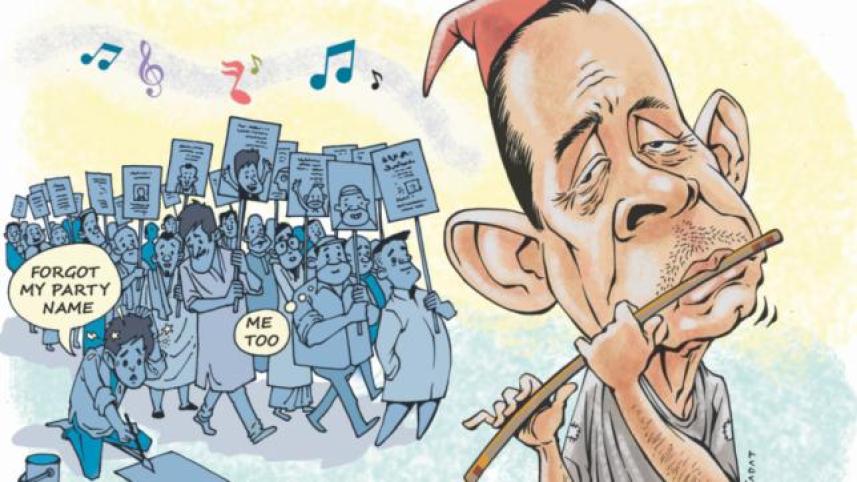Ershad's new alliance

We have another coalition, the country's biggest-ever, titled United National Alliance (UNA) led by Jatiya Party chief HM Ershad. Coalition is not new to Bangladesh. But the newest one has generated a few questions.
To begin with, it is still not clear how many parties are there in the partnership. Though the spokesperson of the UNA has claimed it is 58, the detailed list of the members mentions names of 56 parties. Among these parties only two are registered with the Election Commission. It is also alleged that most of the parties do not have the adequate political set up such as an office, local committees and so on. It seems there is little substance in this new political move by Ershad except the high number of parties and their pompous names.
It has also raised questions about the status of Jatiya Party (JP) in the AL-led 14-party alliance. Currently, the JP is a part of the ruling alliance. Awkwardly enough, it is also the main opposition party in the parliament while having three members in the cabinet. With its latest move to form a separate election coalition, JP has only made the whole political state more confounding.
According to the press statement, the new alliance is aimed at contesting the upcoming elections and forming government together with the alliance members. But given the credential of the constituents of the new coalition one wonders if that is possible. Hence the question arises why this new coalition? Is it a bargaining tool in future electoral politics? Or, has the former autocrat been put up to it?



 For all latest news, follow The Daily Star's Google News channel.
For all latest news, follow The Daily Star's Google News channel.